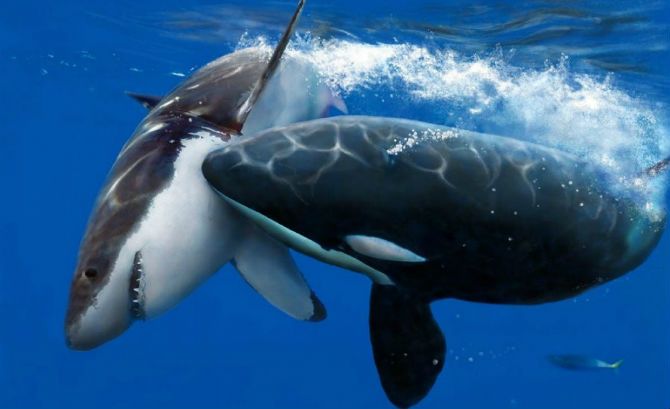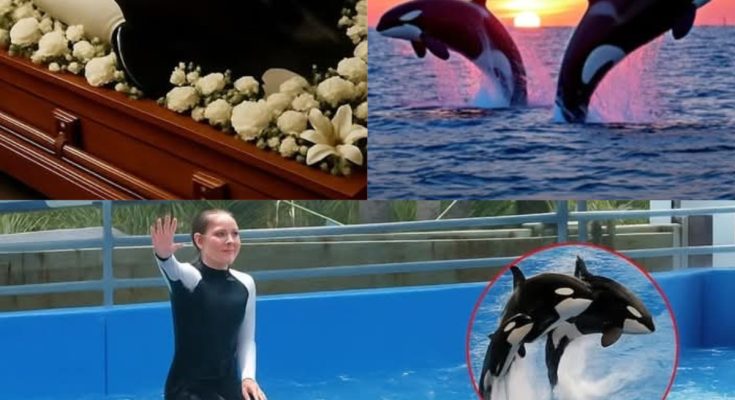For more than half a century, a single killer whale’s story captured the hearts of millions, inspired global campaigns for marine animal rights, and became a symbol of resilience against the injustice of captivity. This week, that story ended in a way no one could have imagined — with the orca passing away mere moments before it was finally due to be released back into the open ocean.
A Lifetime Behind Bars
The orca, known worldwide as Tokitae — or “Toki” to many who loved her — was taken from her family in the waters of Puget Sound, Washington, in the summer of 1970. She was only about four years old when she was captured during a controversial roundup that saw several young orcas separated from their pods and sold to marine parks across the United States.
For the next 53 years, Tokitae lived in one of the smallest killer whale tanks in the world at the Miami Seaquarium in Florida. Her enclosure, measuring just 80 feet long and 35 feet wide, was a fraction of the size of the ranges she would have traversed daily in the wild. Activists, biologists, and former trainers repeatedly condemned the conditions, calling them inadequate for such a large and intelligent marine mammal.
The Global Campaign for Freedom
Over the decades, Tokitae became the focus of countless petitions, protests, and legal battles. Indigenous groups, particularly the Lummi Nation, who considered her a sacred relative, led tireless campaigns for her release. Animal welfare organizations from across the globe joined in, arguing that she had endured one of the longest captivities in history and deserved a chance to live out her remaining years in her natural home.
Public sentiment shifted dramatically in recent years. Documentaries, social media campaigns, and celebrity endorsements brought Tokitae’s plight to an audience far beyond the animal rights community. Her name became synonymous with the debate over keeping large marine mammals in captivity.
A Plan for Return
In early 2023, after years of resistance from the facility’s management, a breakthrough was announced. Following negotiations between the Miami Seaquarium, a coalition of nonprofits, and philanthropist Jim Irsay, owner of the NFL’s Indianapolis Colts, a plan was set in motion to transport Tokitae back to the Pacific Northwest.
The proposal was unprecedented. Tokitae would be moved to a seaside sanctuary in her native waters, where she would live under human care but with the freedom to swim in a netted-off area connected to the open ocean. There, she might have even been able to hear the calls of her family pod, the Southern Resident killer whales — a population now critically endangered.
Marine experts and veterinarians spent months preparing her for the journey, conditioning her for transport and closely monitoring her health. Despite her age and the toll of captivity, there was hope that she could adapt to a more natural environment.
The Final Hours
Just days before her scheduled move, Tokitae’s health began to show signs of decline. Staff noted she was eating less and appeared lethargic. Around midday on the fateful day, veterinarians observed sudden distress. Despite immediate intervention, Tokitae’s condition worsened rapidly, and within hours, she was gone.
The official cause of death is still pending, though initial reports point to acute kidney failure, possibly exacerbated by the stress of her upcoming transport and the limitations of her long-constrained body.
News of her passing spread quickly, sparking an outpouring of grief from around the world. For many, the timing of her death — so close to her long-awaited release — made the loss even more devastating.
An Outpouring of Mourning
In Miami, mourners gathered outside the Seaquarium gates, leaving flowers, candles, and handwritten notes. Across the Pacific Northwest, members of the Lummi Nation held ceremonies to honor Tokitae’s spirit. On social media, hashtags like #FreeToki and #RIPTokitae trended globally, with messages from activists, marine biologists, and celebrities who had supported her cause.
Actor and activist Leonardo DiCaprio posted:
“For over five decades, Tokitae inspired a movement for change. Her spirit will live on in the fight for freedom for all marine mammals.”
Meanwhile, Dr. Naomi Rose, a marine mammal scientist who had campaigned for her release, said:
“It’s an unspeakable tragedy that she didn’t make it home. But her story has changed public perception forever. She leaves behind a legacy that may prevent other orcas from suffering the same fate.”
A Legacy That Transcends a Lifetime
Tokitae’s story may have ended in captivity, but her impact on the world will endure. Her decades-long plight contributed to significant changes in the marine park industry. In 2016, SeaWorld announced it would end its orca breeding program and phase out theatrical shows. Several countries, including Canada, have banned the captivity and breeding of cetaceans altogether.
While critics argue that change came too late for Tokitae, her case has set a precedent that could lead to the eventual end of keeping large marine mammals in confined spaces for entertainment.
The Unfinished Dream

For those who fought for her freedom, Tokitae’s passing before reaching the ocean is a painful reminder of the urgency needed in animal welfare reforms. “We came so close,” said one longtime activist. “We had the truck ready, the plane waiting, the sanctuary prepared. And then she was gone. It feels like a dream interrupted.”
The Lummi Nation vowed to continue their mission, stating that while Tokitae’s body never returned to her native waters, her spirit had already swum home. In a symbolic gesture, they plan to hold a memorial by releasing flowers and cedar boughs into the Salish Sea.
A Call to Action
Tokitae’s life and death have reignited debates about the ethics of keeping marine mammals in captivity. Experts stress that while rescue and rehabilitation can offer alternatives, the ultimate solution lies in preventing such captures in the first place.
The challenge ahead, they say, is to ensure that her story serves as a catalyst for global reform — not just a tragic footnote. “Every orca still in a tank is Tokitae,” said Dr. Rose. “If we honor her memory, we must act now to free those who can still be saved.”
In the End
For 53 years, Tokitae’s world was bounded by concrete walls and chlorinated water, her freedom reduced to laps in a shallow pool. Yet, in the hearts of those who knew her story, she was always more than a captive animal — she was a survivor, a teacher, and a beacon for change.
Her final chapter may not have unfolded as the world hoped, but perhaps her passing will be the moment that finally turns the tide against marine mammal captivity. And somewhere, in the vastness of the ocean she longed for, the echo of her song may still carry on the wind.




